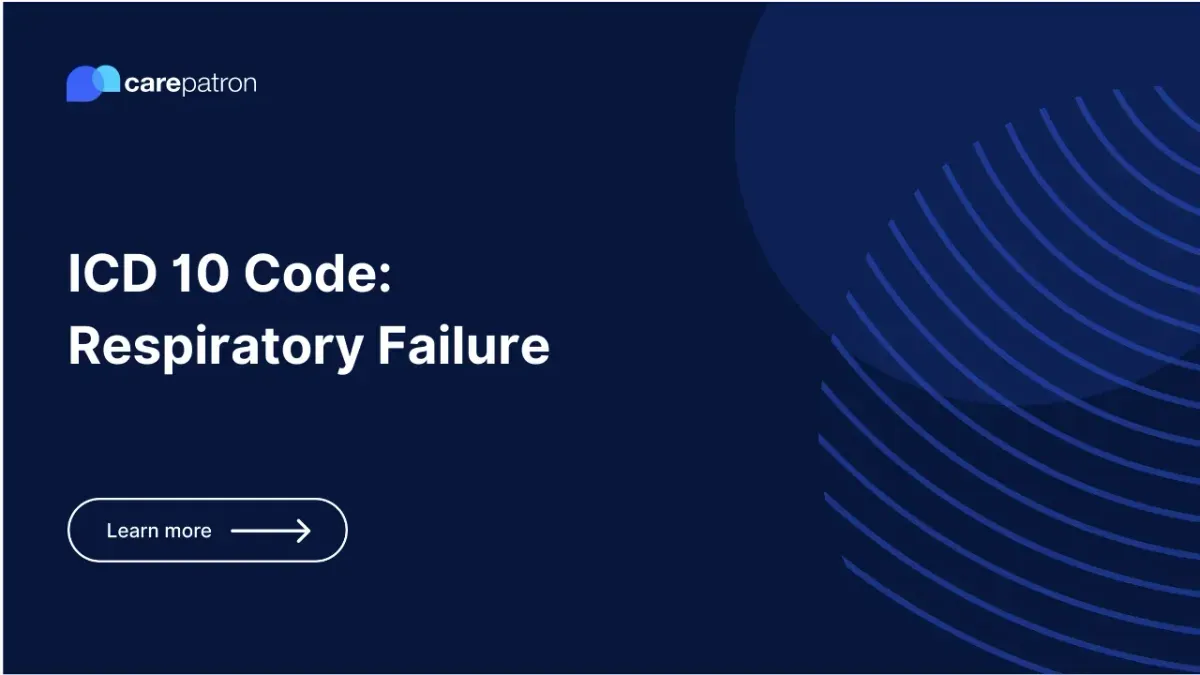
Respiratory Failure ICD-10-CM Codes
Learn about the ICD-10-CM codes for respiratory failure that you can use through this guide.
Use Code
Commonly asked questions
Yes, acute respiratory failure can occur suddenly due to various medical conditions or events, necessitating rapid medical attention. This is a medical emergency.
While many cases are associated with lung disorders, respiratory failure can also result from neuromuscular conditions or chest injuries.
Treatment may include oxygen therapy, assisted ventilation, addressing the underlying cause, and supportive care tailored to the patient's condition.
EHR and practice management software
Get started for free
*No credit card required
Free
$0/usd
Unlimited clients
Telehealth
1GB of storage
Client portal text
Automated billing and online payments
